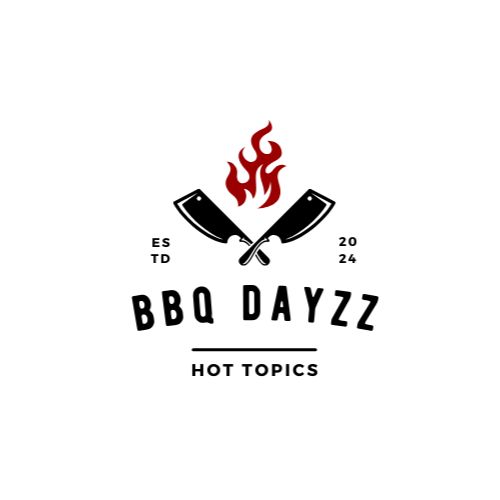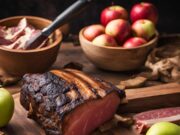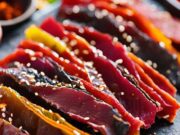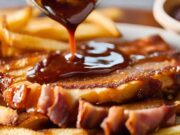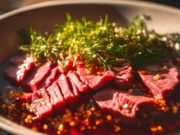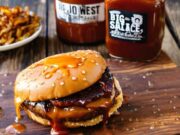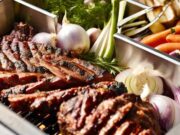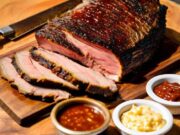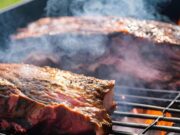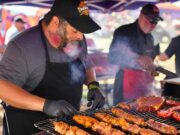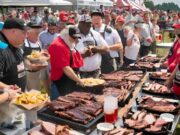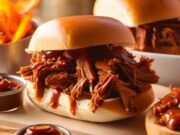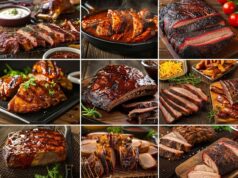Understanding the Difference: Barbeque vs Barbecue
Grapple with the grilling question: barbeque vs barbecue, which is the correct spelling? It’s a topic that triggers tasty debates as fierce as the heat on an open fire. The Mandela Effect, a phenomenon where people remember world events happening differently, even enters the fray. Some recall the usual spelling as ‘barbeque’, while others swear by ‘barbecue’. This mystery deepens when we consider well-known restaurants like ‘Barbeque Nation’ and ‘Absolute Barbeque’. So, let’s sink our teeth into this juicy issue and explore the differences in spelling, usage, and origins of these words, ensuring we leave no stone unturned. Get ready, it’s about to get smokin’ hot!
Key Takeaways
- Both ‘barbeque’ and ‘barbecue’ are used interchangeably, but ‘barbecue’ is more commonly accepted as the correct spelling.
- The Mandela Effect plays a role in the ‘barbeque vs barbecue’ debate, as public memory can influence language and spelling preferences.
- BBQ culture, promoted by entities like ‘Barbecue Nation’, also shapes the usage and acceptance of ‘barbeque’ and ‘barbecue.
- The art of barbecuing meat creates a sensory experience that transcends the spelling controversy.
- ‘Barbeque’ is not a mis-spelling but an accepted variant, contributing to the rich lexicon of BBQ-related words and phrases.
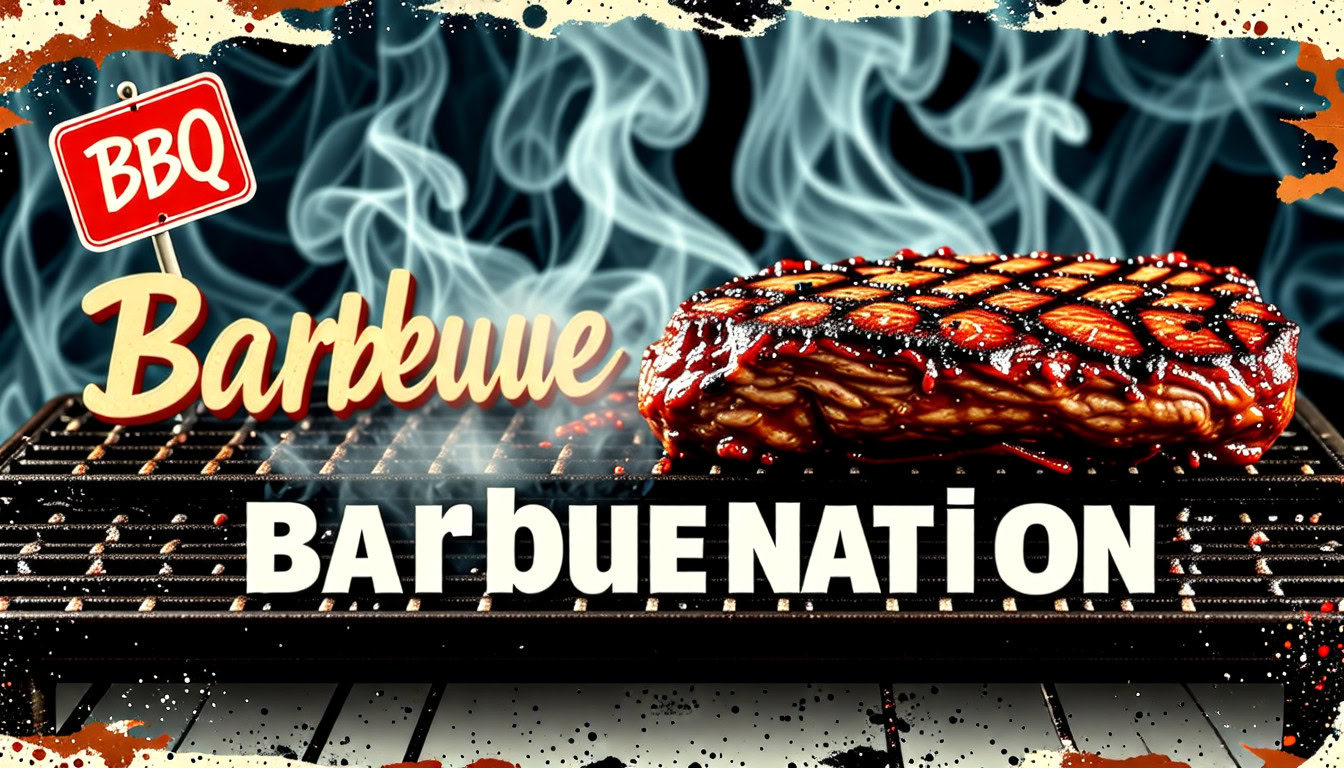
Exploring the Origins of the Words Barbecue and Barbeque
Unravelling the roots of the words barbecue and barbeque can transport us to a delightful linguistic journey. It’s common knowledge that the term ‘barbecue’ is widely accepted. However, ‘barbeque’ emerges as a secondary spelling, often stoking curiosity. These words, associated with sizzling meat and mouth-watering aromas, have become an inseparable part of our culinary vocabulary. But, where did they originate?
Here’s a bite-sized table to further understand:
| Words | Origins | Popular Usage | Example |
|---|---|---|---|
| Barbecue | American English | Barbecue nation, public places | Treating yourself to ‘barbecue meat’ |
| Barbeque | Variation | Less common, but correct | “Visited barbeque nation” |
| BBQ | Abbreviation | Informal settings | Promoting Barbecue Nation with “BBQ” |
| Absolute Barbeque | Brand name | India | “Absolute barbeque” is a popular restaurant |
Remember, whether you’re a fan of ‘barbecue’ or ‘barbeque’, it’s the smoky flavour that truly captures the senses.
The Role of World Events in Shaping the Usage of Barbecue and Barbeque
In the world of barbecue, various global occurrences have played a significant part in determining the terminology used to describe this popular cooking method. It’s a publicly accepted fact that the spelling ‘barbeque’ has become more prevalent as a result of these events, despite ‘barbecue’ being the original word.
For instance, the establishment of brands like Absolute Barbeque and Barbecue Nation have influenced how people remember the term. The use of ‘BBQ’ as an abbreviation, often seen in informal settings or promotional materials, also adds a twist to the tale.
Even the ‘death of Mandela’ event had an impact on the language, with the correct spelling being questioned in many senses related to barbecuing.
| Words | Origins | Popular Usage | Example |
|---|---|---|---|
| Barbecue | American English | Most common, traditional spelling | Used when referring to the cooking method |
| Barbeque | Variation due to world events | Less common, impacted by global occurrences | Used in brand names like ‘Absolute Barbeque’ |
| BBQ | Abbreviation due to convenience | Used in informal settings or promotional materials | Seen in promotional content for ‘Barbecue Nation’ |
| Absolute Barbeque | Brand name influenced by events | Popular in certain regions due to brand recognition | People remember this spelling due to the brand’s influence |
| Barbecue meat | Specific usage | Refers to the meat cooked using this method | Common phrase in recipes and cooking instructions |
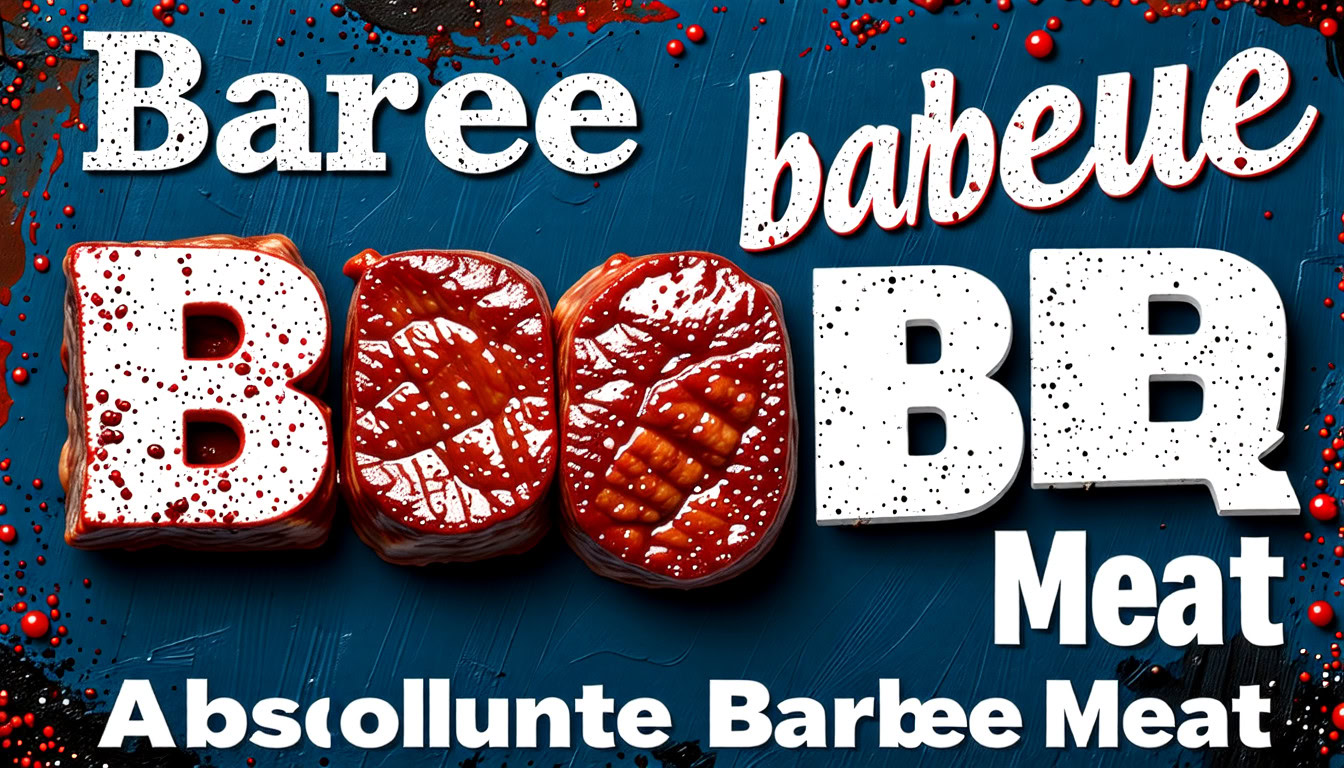
Barbecue or Barbeque: The Absolute Breakdown
Pitmasters and food enthusiasts often engage in the debate of ‘barbeque vs barbecue’. Is one spelling more correct than the other? Or are they simply different versions of the same delicious food? Let’s delve into this.
Firstly, the term ‘barbecue’ is widely accepted in American English. It’s a common term in various regions and is often used in promotional material for establishments like Barbecue Nation. Yet, the alternative spelling ‘barbeque’ also has its place. It’s a less common variant, but still recognisable to the avid griller.
However, the more casual abbreviation ‘BBQ’ is used frequently in informal settings. It’s a breezy alternative that is easily understood worldwide. Lastly, we have ‘Absolute Barbeque’, a brand that has cleverly incorporated the term into its name, adding an extra layer to the debate.
In conclusion, all these words for ‘barbecue’ have their own unique charm, and their usage often depends on regional preferences and individual tastes. So, barbecue or barbeque? It’s your call!
Tracing the Influence of BBQ as a Secondary Spelling
If you’ve ever visited a Barbecue Nation or tried Absolute Barbeque, you’ve likely noticed the variation in spelling. The contest of ‘barbeque vs barbecue’ is a curious one, with BBQ serving as a shorthand in casual conversation. You see, the word ‘BBQ’ is not just a cool abbreviation, it’s an absolute embodiment of the laid-back, convivial spirit that barbecue culture promotes.
The nation stands divided, with some staunchly advocating for ‘barbecue’, citing it as the correct form. Others, however, embrace ‘barbeque’ as an equally valid alternative. This divergence is a testament to the rich tapestry of language, reflecting how one word, ‘barbecue’, can morph over time to yield multiple accepted forms.
So, next time you’re at a cookout, remember that the words ‘barbecue’ and ‘barbeque’ are more than just spellings. They’re slices of culture, sizzling on the grill of linguistic evolution.
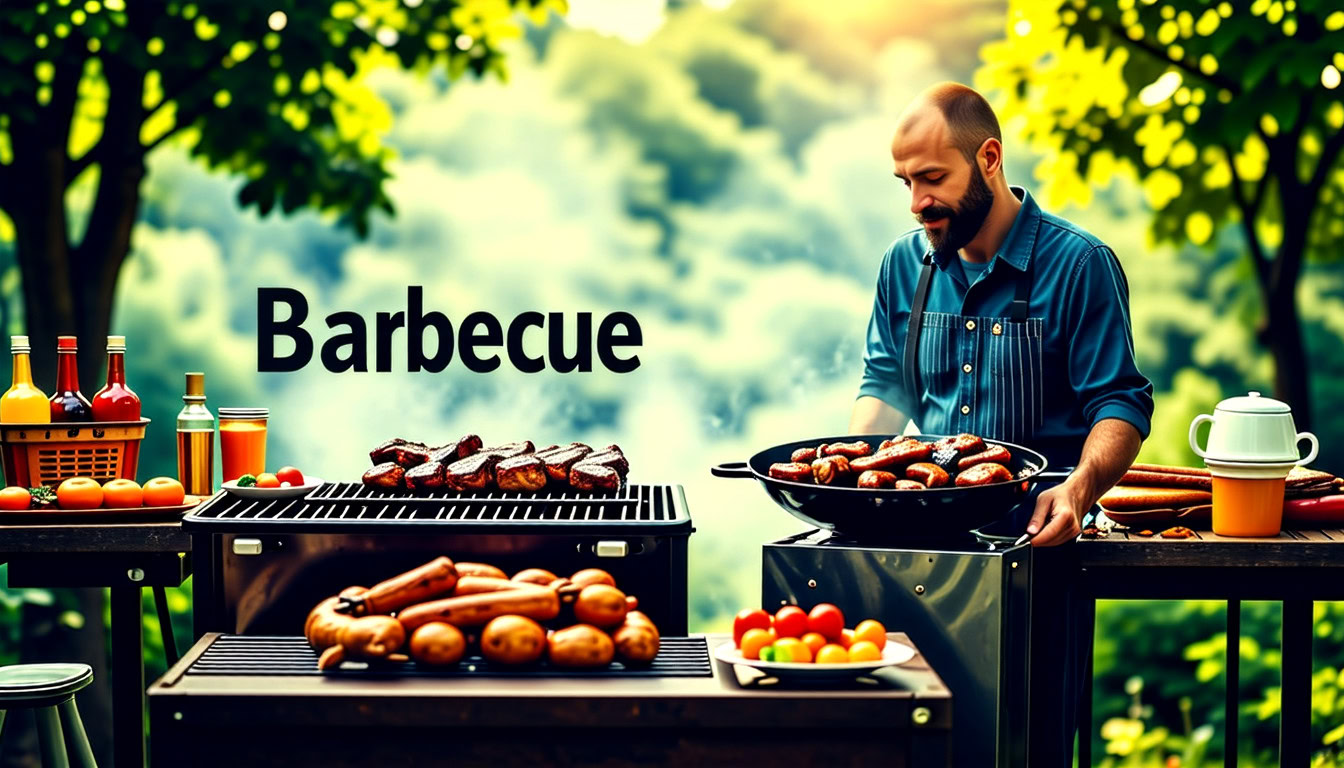
The Mandela Effect and the Barbeque vs Barbecue Controversy
Have you ever noticed a discrepancy in the way we spell certain words? Take barbecue for example. Some would argue that it’s spelled as barbeque. This discrepancy may seem minute, but it’s created quite the hullabaloo, especially amongst connoisseurs of this culinary art.
| Spelling | Origin | Usage | Instances |
|---|---|---|---|
| Barbecue | American English | Common in formal writing | Barbecue Nation, Barbecue meat |
| Barbeque | Variation | Popular in informal settings | Absolute Barbeque |
| BBQ | Short form | Used in casual conversation | BBQ Nation |
Quite fascinating, isn’t it? This is not just about the correct way to spell a word, but it also ties into the phenomena known as the Mandela Effect, where a group of people remember an event or detail differently from how it actually occurred.
So, whether you’re a fan of Barbecue Nation or Absolute Barbeque, just remember, at the end of the day, it’s all about enjoying that smoky, flavourful goodness.
How Public Memory and the Death of Mandela Impacted the BBQ Lexicon
The passing of a global icon, like Nelson Mandela, can significantly influence cultural phenomena, even our culinary lexicon. One might wonder, what does the loss of a political figure have to do with the barbeque vs barbecue debate? Well, let’s dig into this absolute mystery.
Some of you might recall visiting Barbecue Nation, a popular restaurant chain, and relishing the taste of smoky meats. Yet, others would swear that it was always ‘Barbeque Nation’. This discrepancy in memory is fascinating.
This is a classic example of what some term as ‘collective misremembrance’, a phenomenon where a group of people collectively remember certain events or details differently from the correct record. It’s like your memory playing a game of Chinese whispers with itself.
Does this bring a fresh perspective to your barbeque-barbecue conundrum? Nonetheless, whether you’re a ‘barbeque’ or ‘barbecue’ proponent, one fact remains – the irresistible charm of grilled meat is universal. So, let’s keep the grill sizzling and the debate healthy.
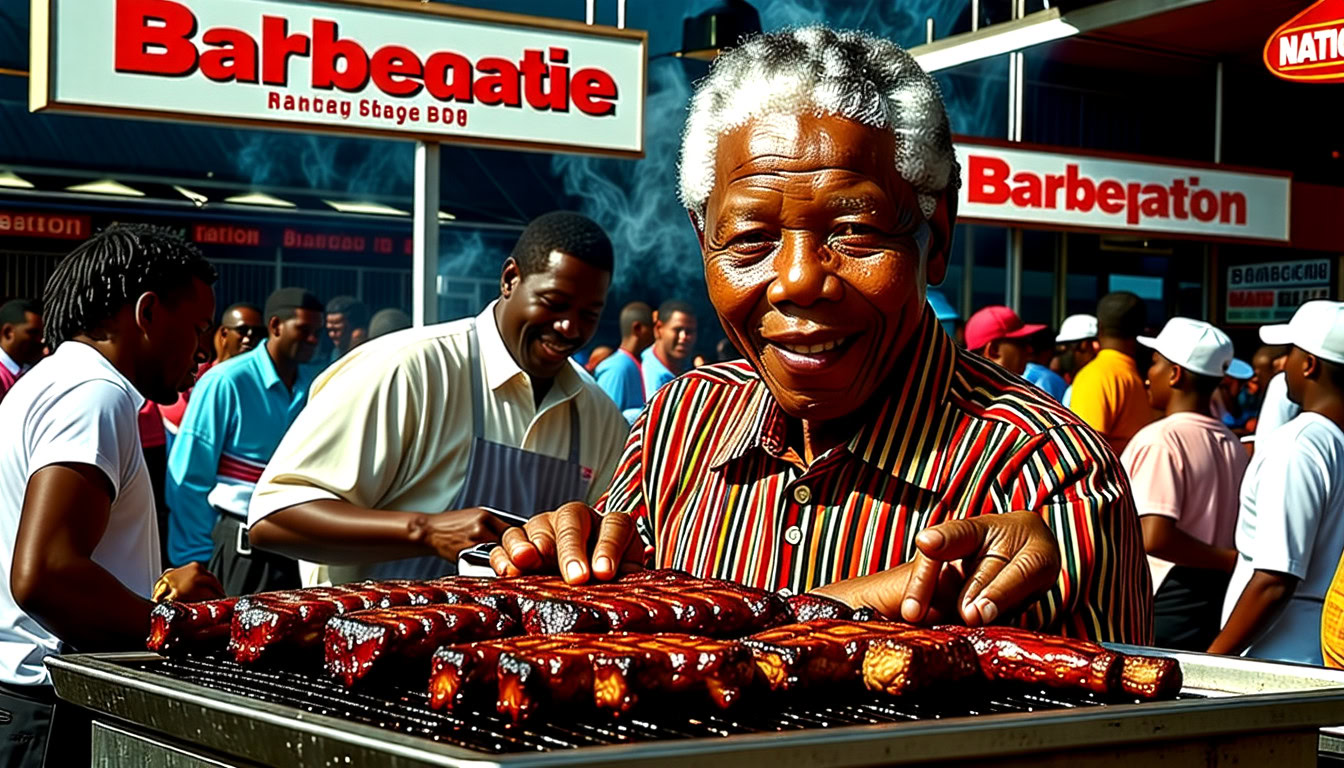
Visiting the Barbeque Nation: A Glimpse into the Culture of BBQ
A trip to Barbecue Nation can be a delightful journey through the vibrant culture of BBQ. The grilling, the sauces, the smoke – it’s a symphony for the senses. But here’s a nugget for the curious: have you ever pondered over the ‘barbeque vs barbecue’ debate?
In the grand scheme of things, it’s a small detail, yes, but isn’t it funny how such seemingly trivial matters can spark intriguing discussions? And here’s the correct version – it’s barbecue. The alternative spelling – barbeque – is widely used, but it’s a variation of the original.
Just remember this fun fact the next time you’re at Barbecue Nation and you’ll surely be the life of the nation, making meaningful conversation while enjoying the lovely BBQ!
The Role of Barbecue Nation in Promoting the BBQ Culture
Barbecue Nation has played a vital role in the spread of BBQ culture far and wide. The question that often arises is, is it “barbeque” or “barbecue”? Well, the correct term is barbecue, an American English word, while barbeque is a popular variation.
What’s fun is both words refer to the same delicious, smoky, slow-cooked meat. No matter how you spell it, the mouth-watering aroma and finger-licking taste remain the same.
Barbecue Nation is the torchbearer for the culture, offering an absolute BBQ experience. The words “barbecue” and “nation” have become synonymous with good times, good food and a communal spirit.
The Sensory Experience Associated with Barbecuing and Barbequing
A trip to Barbecue Nation is a steak in the heart of sensory delight. The sights, sounds, smells, and tastes create a perfect symphony of enjoyment. The hot sizzle as the meat hits the grill, the smoky aroma filling the air, the crackle of the flames, and the juicy, char-grilled flavours dancing on your tongue – it’s a feast for all your senses.
Here’s a sensory checklist to enrich your experience:
- Observe the vibrant colours of the fresh ingredients.
- Listen to the rhythmic hiss and pop of the grill.
- Inhale the enticing smoky aroma.
- Savour the complex flavours of the marinade.
- Feel the heat from the grill.
- Enjoy the satisfying crunch of char-grilled vegetables.
- Revel in the absolute joy of a well-cooked meal.
Remember, the battle between ‘barbecue’ and ‘barbeque’ is a matter of regional preference. So, whether you’re at a Barbecue Nation or a barbeque gathering, the sensory experience remains the same.
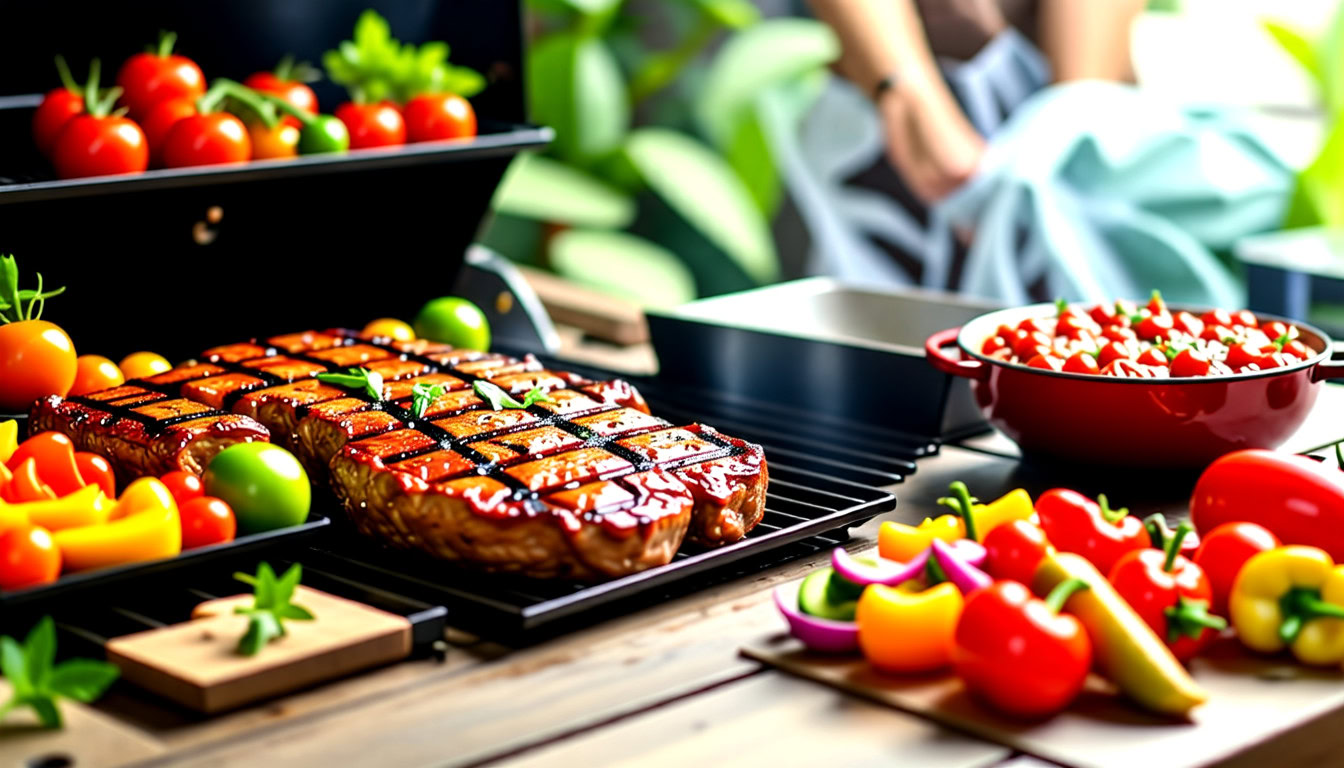
The Art of Barbecuing Meat: A Sensory Delight
Venturing to Barbecue Nation is an adventure for the senses. One can’t help but be enveloped by the scent of sizzling meat, the sound of crackling flames, and the sight of perfectly grilled cuts. This isn’t your typical barbeque – it’s a sensory spectacle.
The words barbecue and barbeque often spark a debate. But let’s settle it: both spellings are utilized, and neither is superior. It’s the experience, not the spelling, that defines the art of grilling meat.
In this nation, every bite of barbecued meat is an absolute joy. It’s a celebration of flavours, textures, and aromas. It elevates the simple act of eating into an immersive experience. So, the next time you fire up the grill, remember that you’re not just preparing a meal, you’re creating a culinary symphony.
Debunking Myths: Is Barbeque a Mis-Spelling or an Accepted Variant?
Have you ever puzzled over the term ‘barbeque vs barbecue‘ while grilling your favourite meal? Let’s clear the smoke and sort this out.
Firstly, ‘barbecue’ is widely recognised as the standard spelling in the English language. On the flip side, ‘barbeque’ isn’t a mistake or typo. Instead, it’s viewed as an acceptable variant, used in different parts of the globe. So, both are correct, depending on where you’re firing up the grill.
In this context, the popular restaurant chain, Barbecue Nation, comes to mind. In spite of the intense debate over spelling, this successful brand chose to stick to the traditional form. The decision wasn’t just a shot in the dark, but a choice made after considering the absolute importance of aligning with the most common spelling.
So, whether you’re a ‘barbecue’ or ‘barbeque’ supporter, remember that both are accepted. Just focus on grilling to perfection!
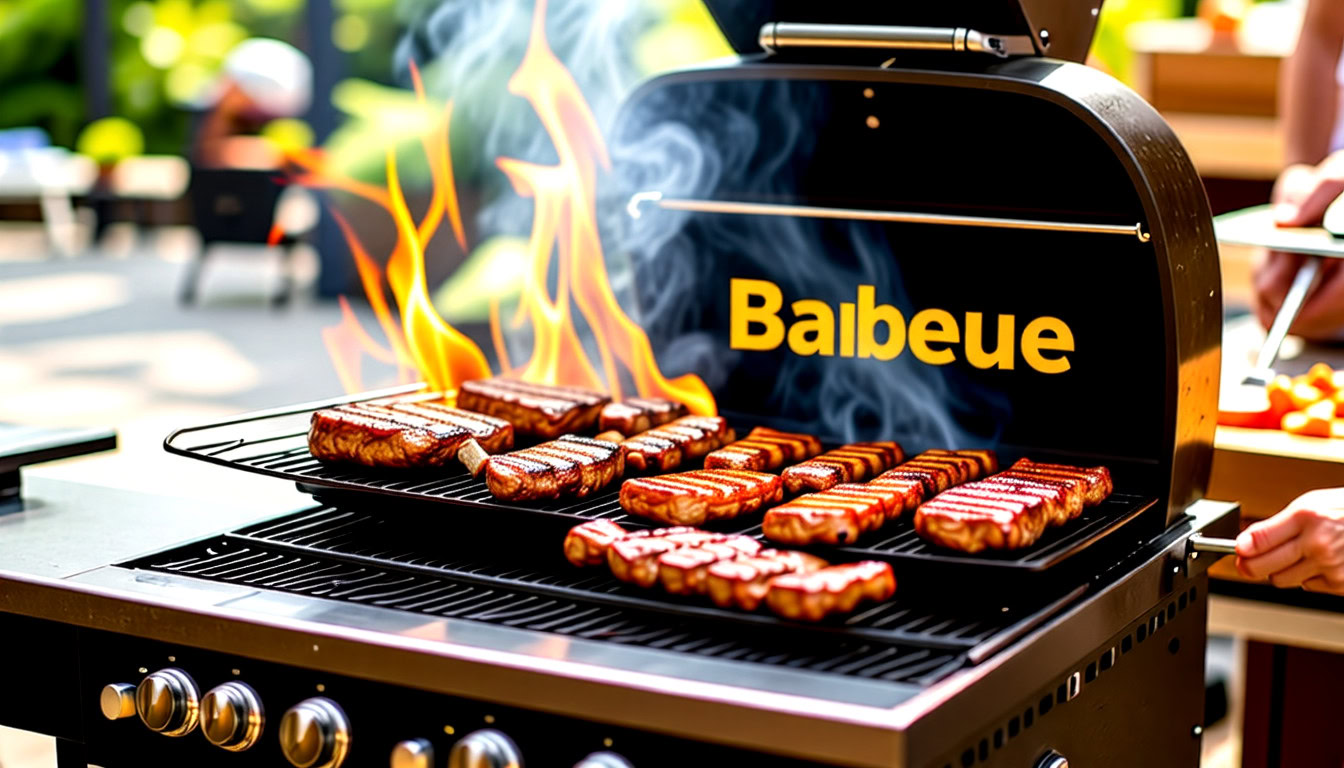
Why Trust Us: Credibility in the Barbecue vs Barbeque Debate
Amidst a world of food enthusiasts, the debate over the correct spelling of barbeque or barbecue continues to sizzle. However, you’re in good hands here. Our credibility rests on substantial research and a deep understanding of culinary linguistics.
To make things clearer, let’s break things down in a simple table:
| Spelling | Origin | Usage | Popularity |
|---|---|---|---|
| Barbecue | Spanish (Barbacoa) | Used globally | More Common |
| Barbeque | English variant | Mostly in USA | Less Common |
While barbecue might have a stronger historical backing, barbeque has found a loyal following, especially in certain regions. It’s not about right or wrong, but about cultural contexts and personal preferences. So, let’s keep the grill flaming and the debate friendly. Because at the end of the day, it’s all about the love for some smoky, tender goodness, isn’t it?
Other Words and Phrases Associated with BBQ Culture
Grill cultures around the globe have their unique jargon. The thrill of the grill isn’t confined to just flipping patties; it has its own lexicon. If you’re a grill nation enthusiast, you’ve likely heard the contentious debate over the terms ‘barbeque’ and ‘barbecue’. A slight difference in spelling, yet they hold distinct meanings within the culture. The heated grilling debates don’t stop there.
Vocabulary of BBQ Culture:
- Pitmaster
- Smoker
- Low and slow
- Rub
- Mop
- Bark
- Burnt ends
Pitmaster refers to the person manning the grill, while a smoker is a type of grill used for slow cooking. Low and slow is the ideal method for achieving tender, juicy results. A rub is a blend of seasoning applied to the meat, and a mop is a sauce used during cooking. The crispy crust that forms on smoked meat is known as the bark, and the prized, caramelized tips of a brisket are the burnt ends. These terms are as integral to the barbeque culture as the food itself.
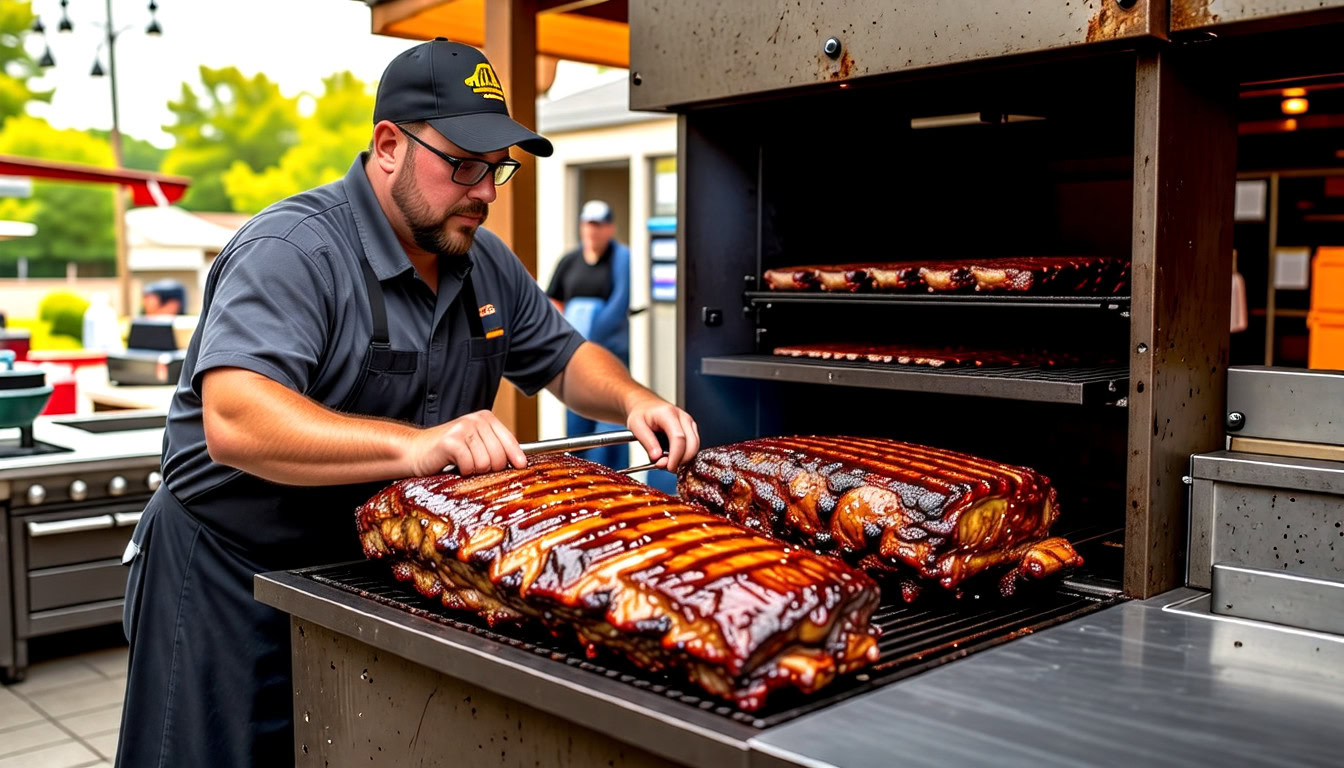
Fast Fact: The Number of Words Related to BBQ
It’s a grill master’s delight to delve into the array of terms associated with the art of grilling. One can’t help but marvel at the diverse lexicon that has developed around this globally cherished cooking method. For instance, barbeque and barbecue are two popular terms in use. Although they seem identical, barbeque is the Americanised version, while barbecue traces its roots back to the Caribbean.
In the realm of BBQ, countless words exist, each with its own unique meaning: from the pit-master in charge of the grill to the smoky flavor produced. It’s a testament to how this cooking style transcends geographical borders and cultures, uniting people over the shared love for BBQ.
Conclusion
So, there you have it! The hotly debated topic of Barbeque vs Barbecue is more than just a trivial spelling difference. It’s a journey through time, tracing the influence of world events and cultures on our beloved BBQ lexicon. From the origins of the words to the sensory delights they evoke, the world of BBQ is a cultural melting pot that goes beyond the grill.
In the end, whether you’re a staunch advocate for ‘Barbecue’ or a die-hard fan of ‘Barbeque’, remember that it’s not just about the name. It’s about the art, the experience, and the memories created around the sizzling grill. So, next time you fire up the BBQ, take a moment to appreciate the rich history behind the smoky, delicious magic that is barbecuing. After all, no matter how you spell it, nothing beats the joy of gathering around the grill with friends and family.
FAQ
- What is the difference between Barbecue and Barbeque?Despite these two words being used interchangeably, there’s a subtle difference that sets them apart. The term barbecue is generally accepted as the correct spelling and has its roots in the Taino Indian word ‘barbacoa,’ later adopted by the Spanish. In contrast, barbeque is often considered a variant or misspelling. However, it has gained acceptance over time, particularly in certain regions and cultures.
- Why does the spelling BBQ exist?The abbreviation BBQ is a convenient shorthand for both barbecue and barbeque. Originating from the need for a shorter, more user-friendly term, it’s now widely used in advertising, restaurant names, and casual conversation. It has become a powerful symbol of the culture and rituals associated with these outdoor cooking practices.
- Does the Mandela Effect play a role in the Barbecue and Barbeque debate?The so-called Mandela Effect refers to situations where a large number of people share a false memory. In the context of barbecue and barbeque, it might be that people remember barbeque as the correct spelling because they’ve seen it spelled that way in certain places, even though barbecue is generally accepted as the correct spelling. However, this theory, while intriguing, is more speculative than based on solid evidence.
- What is the Barbecue Nation and Barbeque Nation?The term Barbecue Nation or Barbeque Nation is often used to describe communities, regions, or even entire countries where barbecuing is a significant part of the culture. These places might have specific rituals, recipes, and methodologies associated with barbecuing, contributing to a rich and diverse BBQ culture worldwide.
- Are there any myths associated with Barbecue and Barbeque?One common myth is that barbeque is merely a misspelling of barbecue. While it’s true that barbecue is the original spelling, barbeque has gained acceptance over time and is now considered an accepted variant in some regions and cultures. The usage of these terms can often be a matter of personal preference or regional dialect, rather than a strict rule.
